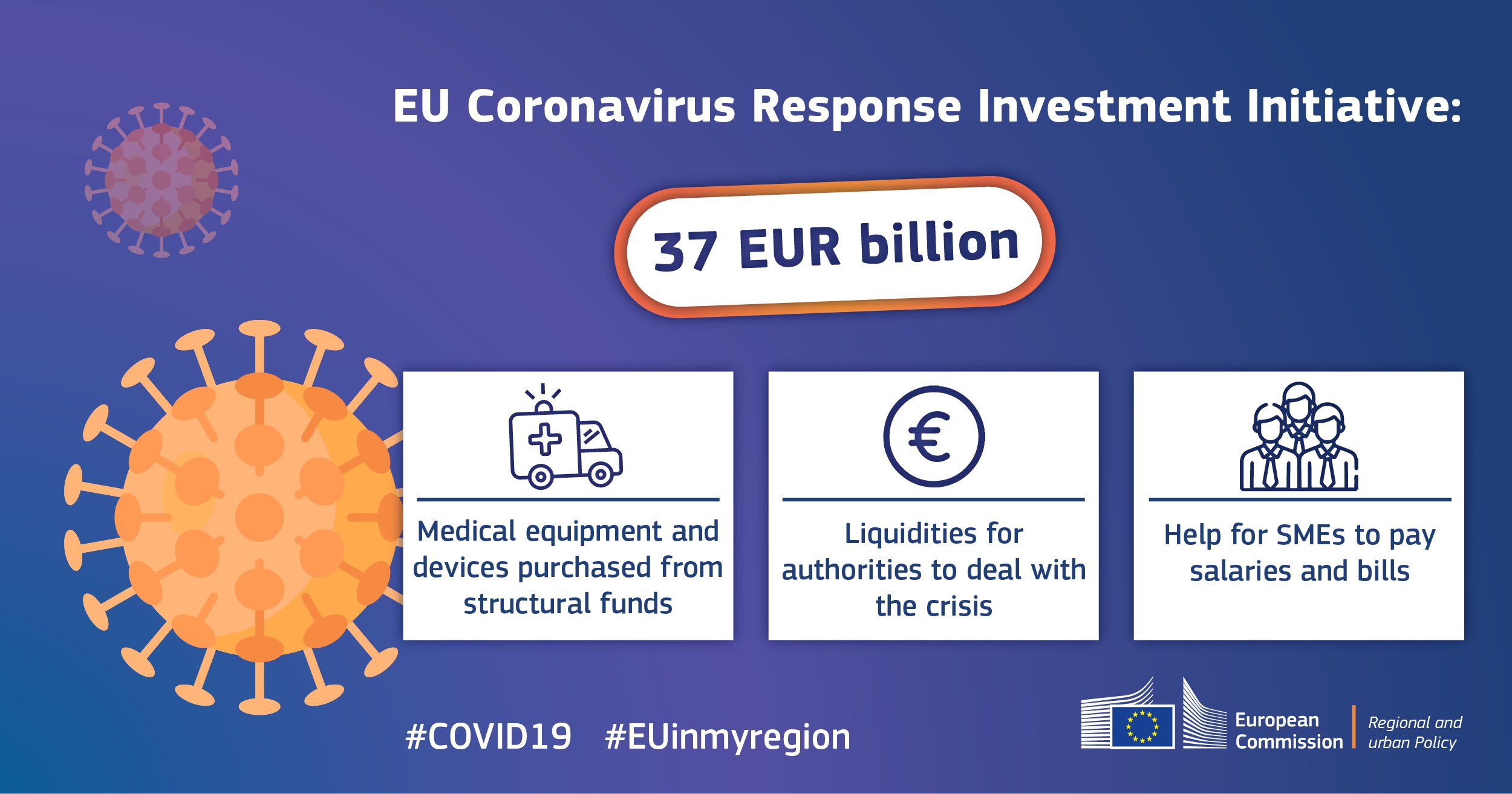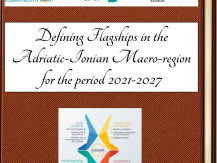Coronavirus Response Investment Initiative
The European Commission has set up the Coronavirus Response Investment Initiative (CRII) to help Member States fund their coronavirus crisis response.

Coronavirus Response Investment Initiative concentrates on the immediate mobilisation of structural funds, to allow for a prompt response to the crisis.
In this regard, a number of very important changes were introduced that extended the scope of support of the Funds, provided immediate liquidity and gave flexibility in programme amendments.
The first Coronavirus Response Investment Initiative package consists of three main elements:
1) €37 billion of European public investment
In order to quickly direct €37 billion of European public investment to address the impacts of the Coronavirus crisis, the Commission proposes not to request Member States to reimburse unspent pre-financing for the European Structural and Investment Funds for 2019. Member States would have normally needed to reimburse a total of about €8 billion of the unused pre-financing they received for 2019 by end-June 2020. They will now be allowed to hold onto this money, which will provide them with a liquidity buffer of about €8 billion enabling them to accelerate investments related to the COVID-19 outbreak.
Taking into account the average co-financing rates across Member States, these about €8 billion will be able, in combination with co-financing from the EU budget of some €29 billion, to trigger total EU budget support of €37 billion. This will not require any money from the national budgets and provide much needed liquidity to save lives, sustain companies and much more. Additionally, Member States will have the possibility to reallocate funding in a simple manner to make best use of any additional unallocated money under cohesion policy to address the Coronavirus crisis where the impacts are the highest.
In addition to alleviating Member States' public finances and supporting their healthcare systems in times of need, this measure will also help them to accelerate their unallocated cohesion policy funding spending. This shall create overarching positive effects for the economy.
2) Maximum flexibility in applying EU spending rules
To make sure Member States can fully count on EU budget support to address the crisis, the Commission proposes to make Coronavirus related expenditure eligible under structural funds. This will allow healthcare costs to be eligible for reimbursement.
As Member States still have up to €28 billion of structural funds from their 2014-2020 national envelopes not yet allocated to projects, they will be able to make use of the above additional flexibility to direct the use of this unused funding for fighting the crisis.
Furthermore, the Commission will be applying the rules on EU cohesion spending with maximum flexibility in order to speed up implementation on the ground. Through these measures, the Commission will make sure EU countries can use the full portfolio of funding options from the EU budget to address their current needs.
3) Access to the EU Solidarity Fund
As part of this initiative, the Commission is proposing to include public health crises in the emergencies that the EU Solidarity Fund finances. It currently helps Member States go through a range of different natural disasters including floods, forest fires, earthquakes, storms and drought.
Today's measure will make sure the hardest hit Member States could have access to additional support of up to €800 million.
You might be interested in

EUSAIR flagships all summed up!

3rd EUSAIR Annual Forum – CATANIA DECLARATION

The Hellenic Republic assumes the Presidency of the EU Strategy for the Adriatic and Ionian Region (EUSAIR) (1 June 2024 – 31 May 2025)








